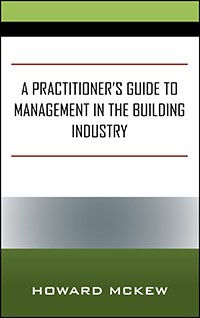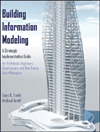A domain is a territory over which rule or control is exercised. In Internet terms, a domain is a group of computers and devices on a network that are administered as a unit with common rules and procedures. Within the Internet, domains are defined by their Internet protocol (IP) address. All devices sharing a common part of the IP address are said to be in the same domain.
Developing The Building Domain Development
To which "building" am I referring, the noun or the verb? Actually, both. So why am I writing about this? In Anto Budiardjo's part of this month's building automation supplement, "Connecting Convergence," he introduces us to a new player in our arena, the building domain expert.Anto defines the term thusly: "Domain experts are specialists, they hold the key to making systems work, they are the only group that can design a building properly, make it function, and keep it working throughout the life of the building. Without these specialists there are no reliable buildings systems."
Aren't we all working towards being domain experts? Of course we are, but how have we retrained ourselves in the new art of building domain development? We need to re-examine our roots, where our industry was originally part of the "sub" of a subcontractor in a construction contract, to our present position where we are being invited into our client's domain as the expert in providing real-time data connections.
It's a classic paradigm shift. Are we up to the challenge? Of course we are. Let's take this opportunity very seriously. Have you upgraded your IT skills and your understanding of domain management recently? Or have you partnered your resources with an expert in this field?
If you answered no to both of these questions, I suggest that you review your plans for the future in large building automation. It is going to be hard, if not impossible, to move ahead without these skills. Do not panic. You do not need to go back to school and retrain as an expert in this field, but you must learn enough to know what you do and do not know. This is a very important part of being a player in building domain development. Remember, no one exactly knows what these new building domains will look like until you work with the team to create them. Do not fear the unknown; embrace it. This opportunity allows our creative juices total freedom to be the exciting real-time data part of our client's domain.
Anto also defines enterprise building management (EBM) as "EBM is about a deep understanding of the needs of the enterprise, looking into areas where those needs can be affected by the enterprise's buildings and then providing a mechanism for the enterprise to be connected to the building to achieve enterprise objectives."
A New Era Beckons
How well do we understand enterprise or domain objectives? We must focus our energy on both understanding and demonstrating examples of domain greatness while executing our client's objectives. Our future depends on it. If we lose this opportunity, it is back to being the sub part of a subcontractor. I am not saying that is a bad place for the short term, but with controls becoming commodities, plus the structured wire movement, and/or even wireless, I would not stake my future on it. Times are a-changing; you can see that yourself, but are you changing?This new era of our industry excites me. I liken it to the days when DDC set us free from hardware devices and allowed us to provide cost-effective solutions to existing pneumatic control systems. Part of the excitement then was that we cost-effectively retrofitted existing buildings to have all the benefits of this new technology. The DDC era of the large building automation industry rapidly changed our thought process, allowed new companies to shine, and generally made us a better industry.
I am sure everyone understands clearly the profound impact DDC had on our industry. Moving to the next chapter and getting on with the exciting business of building our clients' real-time data domain will have a profound effect. The takeover of four of our major control companies by multinationals in the last few years makes it clear that our industry is out of the closet and has become mainstream. ES



